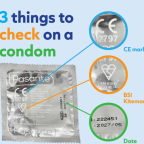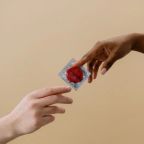Herpes
Herpes (also known as genital herpes) is a virus which can be easily passed on even when no symptoms or visible signs of infection are present.
It’s a lifelong condition which can cause blisters around the genitals that clear up – but often return.
But don’t worry, it’s a condition which usually won’t have a serious effect on your quality of life.
Here we will discuss the signs and symptoms of herpes and how to get treated.
Herpes
Herpes (also known as genital herpes) is a virus which can be easily passed on even when no symptoms or visible signs of infection are present.
It’s a lifelong condition which can cause blisters around the genitals that clear up – but often return.
But don’t worry, it’s a condition which usually won’t have a serious effect on your quality of life.
Here we will discuss the signs and symptoms of herpes and how to get treated.
Signs and Symptoms
It’s common for people to not show any symptoms for herpes and you can even go your whole life not knowing you have it.
But, the most common symptom of herpes is small blisters which develop around your genitals, anus, thighs or bottom.
Other symptoms you may experience include:
- Tingling, burning or itching around your genitals
- Pain when you pee
- Unusual vaginal discharge
How is it Transmitted?
Herpes can be spread in a few different ways and may be transmitted from blood or other bodily fluids like semen and vaginal fluids.
Here are some of the ways you can get it:
- Unprotected vaginal, anal or oral sex
- From a mother to her new-born baby in places where infection is common
- By injecting drugs and sharing needles and drug equipment
- By having a tattoo, body-piercing, or medical or dental treatment in an unhygienic environment
- By sharing toothbrushes or razors contaminated with infected blood
How to Get Tested
The free, easy and discreet way to discover if you have an STI.
Call our Helpline
Speak to a friendly advisor and get the advice and support you need.
You’re not alone.
There are people who care about you and want to help you through this.
Prevention
There are several ways you can help to reduce your chances of getting herpes and of passing it on:
- Using a condom whenever you have vaginal, anal or oral sex
- Avoid having vaginal, anal or oral sex if either of you has blisters or sores
- Avoid sharing sex toys without washing in-between uses
Treatment
Symptoms of herpes can go away on their own, but there is no permanent cure for the infection and an outbreak or recurrence can happen at any time. If you think you may have herpes, it’s a good idea to see a doctor for diagnosis and treatment. There are many other conditions which can cause similar symptoms, so it’s important to get a correct diagnosis so that you can receive the correct treatment.
If you have an outbreak of herpes, antiviral medicine may help shorten it by one or two days if you start taking it as soon as symptoms appear. Outbreaks usually settle on their own and over time tend to happen less often and become less severe.
It’s important to remember that not everyone with herpes will experience outbreaks. Some people may have only one outbreak in their lifetime, while others may have multiple outbreaks. There’s no way to predict how often someone will have an outbreak.
FAQs
Herpes
Clear answers to common questions
Contacting a sexual health service for the first time may be a little daunting, especially if you’re not keen on talking to someone. So, here are answers to some of the questions we get asked a lot.
Why does genital herpes come back?
The virus attaches itself to a nearby nerve and stays in your body. Things such as smoking, drinking alcohol, being unwell, stress or your menstrual cycle can trigger the herpes symptoms to flare up again.
What do I do if I think I have herpes?
You should speak to your doctor or a sexual health professional through our helpline. They’ll be able to get test results quickly and will offer you treatment to manage your symptoms.
How do I manage an outbreak at home?
Keep the area as clean as you can, often salty water is used to help with this. Apply an ice pack wrapped in a flannel to soothe the pain. You can also apply painkilling creams or pour water over your genitals to help reduce any pain while you pee.









